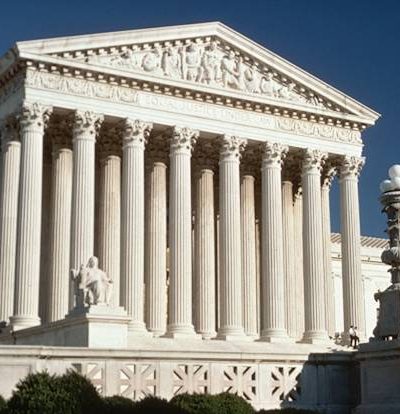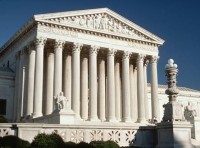By Jan Crawford – CBS News
WASHINGTON, June 28, 2012 – After oral arguments over President Obama’s health care reform law at the Supreme Court three months ago, it appeared five justices were prepared to overturn the law’s key provision — the requirement that all Americans have health insurance from birth until death or pay a penalty — the so-called “individual mandate.”
But even if the justices were divided 5-4 to uphold the law at the end of March, much can change between an initial vote and the decision. Justices can and have changed their minds in cases before. They can temper their views or compromise to narrow the impact of a ruling. They can form blocs with other justices to dictate the result.
No one outside the court knows how the justices will rule, and we won’t know until shortly after 10 a.m. To its credit, the court is the only place in town that doesn’t leak. On an issue of this magnitude — a case that will affect the lives of all Americans — that fact alone is extraordinary.
It also has Washington gripped with speculation — desperately looking for any clue that could suggest how the court will rule. The smallest thing — a justice’s mood in a public gathering — now is being analyzed for bigger meaning.
Piled up together, the tea leaves have opponents of the law feeling anxious and uncertain and senior Obama administration officials daring to have hope.
Let me be clear on this: We all know the tea leaves aren’t worth much — it’s the law that matters. It’s more a reflection of how anxious people are about this decision. Plus, you always have your optimistic and pessimistic fans who read things entirely differently based on their underlying outlook on life. Optimistic fans see positive signs everywhere; pessimistic fans always interpret signs negatively, believing their team will lose so they’re pleasantly surprised if they win.
So with those caveats firmly in mind, here’s the deal. There are signs that suggest the court will uphold the mandate. Here are some of the tea leaves lawyers close to the case on both sides are reading. Take it for what it’s worth:
1. At least two conservative justices who are expected to be solid votes to overturn the mandate have seemed glum, which some worry is a bad sign for the law’s opponents. One told friends recently, “It’s been a bad year.” Another said, with resignation, “I’m tired.”
Counterpoint: Maybe it’s been a bad year because the Miami Heat won the NBA championship or other reasons entirely unrelated to the court or the decision. Maybe being tired is just being tired.
2. Justice Antonin Scalia’s scathing dissent in the immigration case — in which he was bemoaning the end of state sovereignty — seemed so angry, so over the top, that observers believed he had to be fired up about something more.
Counterpoint: Maybe he really is angry about the immigration decision. And would Scalia really summarize two angry dissents from the bench on two back-to-back opinion days?
3. Liberal justices recently have seemed upbeat and at ease. Justice Ruth Bader Ginsburg even made lighthearted remarks about the case at a recent convention for liberal lawyers.
Counterpoint: Maybe they’re just trying to keep up appearances. Maybe it’s a giant head fake. Maybe they are just happy in general. This is just ridiculous.
4. The decisions handed down in other recent cases weren’t written by the Chief Justice John Roberts. That means he’s probably writing the health care opinion. But that doesn’t necessarily mean the conservatives carry the day. Maybe he’s cobbled together a compromise with Justice Anthony Kennedy and the liberals. After all, Roberts doesn’t like divisive 5-4 decisions on controversial, highly watched cases. He’s long urged the court to take a narrow approach for greater consensus, to compromise for greater unanimity. Moreover, he’s never seemed as troubled by federalism issues as his old boss and predecessor, William Rehnquist. Would he really overturn health care based on the commerce clause with a decision that split the court along ideological lines?
Counterpoint: Yes. He’s a solid judicial conservative unwilling to compromise on the Constitution, and his questions in oral arguments suggest he believes Congress clearly exceeded its constitutional authority. If Roberts compromises on the law, in a case of this magnitude, what does he even stand for?
5. A careful reading of the argument transcripts reveals Kennedy was perhaps less opposed to the law at argument than initially reported. Many in the media were shocked during the arguments that the justices seemed hostile to the law, and so they went overboard immediately afterward, reporting gloom and doom. But Kennedy’s questions actually were more nuanced than that. His questions later in the arguments suggest he could be open to the government’s position that health care is unique. That means he could give liberals their decisive fifth vote to uphold.
Counterpoint: There is no counterpoint. Kennedy could vote to uphold. He could vote to strike down. He is the key swing vote. Roberts won’t be in the majority to uphold the law if Kennedy isn’t. If Kennedy goes, then Roberts may follow to try to contain the damage. But this case will be determined in large measure by Kennedy, and as I always tell the kids: Kids, don’t ever bet the family farm on Justice Kennedy.
We’ll find out the decision — based on the law and not the speculation — shortly after 10 a.m.







